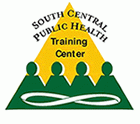
Futures Methods For Public Health Leaders
Course Description:
This course teaches how public health leaders can use futures methods. The methods include tapping into the aspiring mind of people working in public health to project a vision and to look more objectively at trends and scenarios that help assess likely changes affecting the future of public health. These methods also include looking to alternative futures and then taking the perspective of looking back toward the present from the vantage point of future scenarios to identify goals and milestones. The futures methods complement and enrich strategic plans which use current assumptions and shorter term projections.
Target Audience
Academic Faculty/Staff, Federal Government Employees, State Government Employees, Local Government Employees, Non-Government Employees and Students
Learning Objectives
- Explain how public health leaders use personal and collective aspirations
- Identify trends affecting public health in the future
- Use alternative scenarios
Instructor:

Jonathan Peck, MS
IAF President
Jonathan Peck is President and Sr. Futurist at the Institute for Alternative Futures where he provides a wide range of research, consulting, speaking, meeting design and facilitation services. He guides futures research used by government leaders, foundations and non-profits as well as by corporations. Mr. Peck has integrated psychological theory, patterns and insights into his facilitation of vision, mission, and strategic processes for leadership. His research spans health topics, social, technological, economic, ecological and governance futures. He has led IAF projects that sketch out visionary outcomes for U.S. healthcare reform, biomedical research futures, global development and key technology revolutions. Mr. Peck brings multiple disciplines to bear in his futures work.
Mr. Peck’s many projects looking to the future for government agencies, non-government organizations, and multinational corporations in Asia, Europe and the United States all prepare clients for new opportunities. He has worked on the future of health systems design, mental health care, molecular sciences and the health-information infrastructures in multiple countries. Specific studies and projects led by Mr. Peck have forecast the future of technologies, sectors, industries and social change.
Mr. Peck has worked with hundreds of organizations to help shape preferred futures. This includes global concerns, such as with the Rockefeller Foundation on “Smart Globalization” and “Pro Poor Scenarios.” He has helped large national non-profit organizations including AARP and a variety of professional associations. In his business consulting, Mr. Peck works with diverse companies large and small both in the United States and abroad. He provides consulting, speeches, workshops and reports commissioned for businesses.
Mr. Peck has co-authored two books, written numerous articles and given hundreds of keynote speeches to audiences around the world. His articles have been published in Business and Health, Pharmaceutical Executive, Food & Drug Law Review, Clinical Cancer Research, The Monitor, Futures Research Quarterly and many other publications. Mr. Peck received his Master’s degree at the Futures Studies Program in the Political Science Department of the University of Hawaii.
Available Credit
- 2.00 Participation/CETulane Professional and Continuing Education (PaCE) awards 2.00 hour(s) of credit for completing Futures Methods For Public Health Leaders
Price
Required Hardware/software
System Settings
This course is designed to work most effectively if your computer and internet connection meet certain minimal requirements. This course can be accessed using a Windows 10 PC or a Mac with High Sierra1, Mojave, or Catalina. Pop-up blockers should be disabled when viewing the course. Internet Explorer 11 (for Windows 10), or the current version of Google Chrome, Mozilla Firefox, or Apple Safari (for Windows 10 and or Mac) is required. Many of our courses require Java and JavaScript enabled.
Links to External Websites
Links to websites outside this course will open in a new window or tab. Some browsers may minimize the course window. If this occurs, maximize the course window to return to the course.
Adobe Acrobat Reader (for desktops and laptops)
Adobe Acrobat Reader is required to access some documents in this course. If you need to download a free copy of Acrobat Reader, click here.
Internet Connection Speed
A minimum download speed of 1.5 Mbps is recommended for an optimal experience, which is commonly the speed associated with a basic DSL or a cellular/satellite connection. A faster connection, such as cable or fiber service, with further enhance your online experience. A Wi-Fi connection is generally acceptable, but it is dependent upon one of the two services mentioned above. You can check your internet connection speed at http://www.speedtest.net/.

 Facebook
Facebook X
X LinkedIn
LinkedIn Forward
Forward